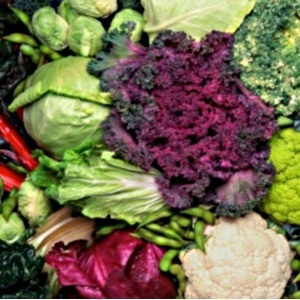
During my childhood and teenage years, I ate fruit and vegetables because my mother told me I had to eat them. After I left my parents’ house, I kept eating various fruit and vegetables on a regular basis, because I was used to do it (not a bad reason in this particular case).
However, when I moved from my hometown in Spain to the United States, I decided that I was too busy to eat my greens. I was always in a rush. So, a piece of Kentucky Fried Chicken and a biscuit for lunch became the norm.
But after I lost two friends to breast cancer and one to a heart attack, I decided to engage in a career as a registered dietician. I then realised that when my mother insisted that I ate the vegetables on my plate, she was offering very healthy advice.
Through nutrition research, I also discovered that fruit and vegetables, among many other health benefits, help us maintain our blood pressure at a healthy level.
What is high blood pressure?
In lay terms, blood pressure is the force with which the blood in your body bangs against the walls of your arteries. If you have high blood pressure, it means your heart is pounding harder than it should to send nutrients and oxygen through your blood vessels to your cells.
Continuous high blood pressure can wreak havoc in your body, because it:
- Causes the walls of the arteries to thicken – a condition that reduces the blood flow.
- Makes the inside of the arteries rough, contributing to the formation of plaque, mounds of fat and debris deposited in the wall of the arteries. Plaque reduces the space available for blood to circulate.
- Enlarges the heart. An enlarged heart becomes weak and has to work harder to send the nutrients through the blood vessels, which results in high blood pressure.
- Weakens the inner walls of blood vessels, triggering the formation of a balloon or aneurysm. This ballooning may cause the blood vessel to rupture, causing a haemorrhagic stroke.
What can you do to keep a healthy blood pressure?
- Be physically active
- Limit sodium (salt) in your diet
- Don’t smoke
- Avoid high alcohol consumption
- Maintain an appropriate body weight
Why can sodium be a problem?
When we eat a lot of salt, we retain a large volume of fluid in our blood vessels that needs to be moved around. And what do you think moves all that fluid in your body? Your heart.
The standard recommendation for sodium is between 1 500 and 2 400mg a day. Most of us consume between 4 000 and 8 000mg per day. How do we manage to ingest so much sodium? Mostly because we eat lots of processed foods, and very few fruit and vegetables.
Why are processed foods so high in sodium?
Manufacturers of processed foods use salt as a preventive measure, because salt keeps microscopic organisms that transmit disease at bay.
Keep in mind that about 75% of the salt we eat every day comes from processed foods, 15% comes from cooking and 10% from natural foods.
How can fruit and veggies maintain low blood pressure?
- Fruit and vegetables are very low in sodium (salt). The sodium content of a piece of fruit ranges from 0mg to 5mg, whereas the sodium content of vegetables range from 1mg to 70mg. An average portion of vegetables contains about 10mg of sodium. At the same time, when you eat fruits and vegetables, you're replacing other foods in your meals that may be high in sodium.
- Fruit and vegetables are high in potassium. Potassium plays a key role in heart functions and muscle contractions, making it an important nutrient for a normal heart (remember the heart is a muscle). Potassium works with sodium to regulate the water balance in the body. Diets low in sodium and high in potassium lower blood pressure, which reduces the risk of stroke.
- Fruit and vegetables are rich in calcium and magnesium. These two minerals are extremely important in maintaining normal blood pressure, because they're required for nerve transmission and regulation of heart-muscle function. Many studies have shown that, as we increase the consumption of foods with a high content of calcium, the risk of high blood pressure decreases, especially if we maintain adequate intakes of magnesium.
Now that you know one of the main reasons why you need to eat fruit and vegetables, would you find the time to include them in your daily diet? Here are some practical ways to help you do it:
- Have a piece of fruit for dessert after your main three meals.
- Have a piece of fruit or some veggies as a snack if you're hungry during the day.
- Have your veggies as part of your two main meals.
- Eat salads with your meals – and by salads I don’t mean pasta or potato salad.
Final thoughts
Making fruit and vegetables part of a lifestyle that includes regular physical activity, as well as a diet low in saturated fat and cholesterol, can work wonders when it comes to maintain a healthy blood pressure. Remember, prevention is better than cure.
References:
Ding EL, Mozaffarian D. Optimal dietary habits for the prevention of stroke. Seminars in Neurology. 2006 Feb;26(1):11-23
About the author:
Emilia Klapp has a Bachelor in Nutrition Science and is certified as a registered dietician by the American Dietetic Association. With her new book “Your Heart Needs the Mediterranean Diet”, she has helped many people to prevent high blood pressure, high cholesterol and to lose weight. Now you can get a FREE list of the 10 Top Curative Ingredients at www.MediterraneanHeart.com.




 Publications
Publications
 Partners
Partners










